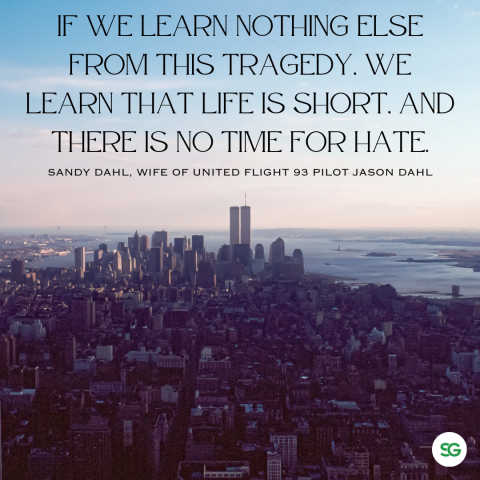September 11 is etched in the collective memory of millions, a day that, for many, symbolizes loss, heroism, unity, and trauma. As we look back on the events of that tragic day, it’s crucial to consider the long-term psychological impact, the resilience of the human spirit, and the ways we can support one another during times of collective trauma.
1. The Psychological Impact of 9/11
The events of September 11 were not only a national catastrophe but also a deeply personal trauma for many. Whether individuals were directly affected, knew someone who was, or were simply exposed to the horrifying images on television, the emotional scars were widespread. Studies have shown that post-traumatic stress disorder (PTSD), anxiety, depression, and other mental health challenges spiked in the aftermath.
Secondary Trauma and Media Exposure
Even if one wasn't directly affected by the events, the continuous media exposure could induce what’s termed as "secondary trauma." The repetitive visuals of planes crashing, buildings falling, and people running, often intensified feelings of fear, vulnerability, and sadness.
2. The Power of Resilience
Despite the profound impact of 9/11, stories of resilience have consistently emerged in its wake. Many survivors and their families demonstrated remarkable resilience and adaptability. Communities came together, bonds were strengthened, and a newfound sense of unity emerged.
Resilience doesn't mean an absence of distress. It's about adapting, growing, and finding meaning even amid despair. The ability of communities and individuals to bounce back underscores the indomitable spirit of humanity.
3. Mental Health: Moving Forward After Collective Trauma
Collective traumas remind us of our shared vulnerability but also our shared strength. Here are some steps we can all take to support ourselves and others:
Remember and Reflect – Take time to honor and remember the victims and heroes of 9/11. Reflection can help provide closure and a sense of connection to the broader community.
Limit Media Exposure – Repeatedly watching distressing events can exacerbate feelings of trauma. It's essential to stay informed but also to know when to disconnect for your well-being.
Seek Support – Talk about your feelings with friends, family, or a professional. Sharing can help process emotions and foster a sense of understanding and support.
Engage in Self-care – Activities like meditation, reading, or simply spending time in nature can help reduce anxiety and stress.
Join Community Activities – Participating in memorial services, group discussions, or community events can provide a sense of unity and shared healing.
Remembering 9/11 is not just about recalling the pain, but also about acknowledging our capacity to heal, rebuild, and unite. As we commemorate this day, let's remember the importance of mental well-being and the role it plays in our collective resilience. Let’s stand together, support one another, and move forward with hope and understanding.
Wishing you all the best,
Team SG
Food for thought:
What were you doing 22 years ago when this occurred?
Did it impact your life in a positive or negative way?
Do you do anything to mark this day?
